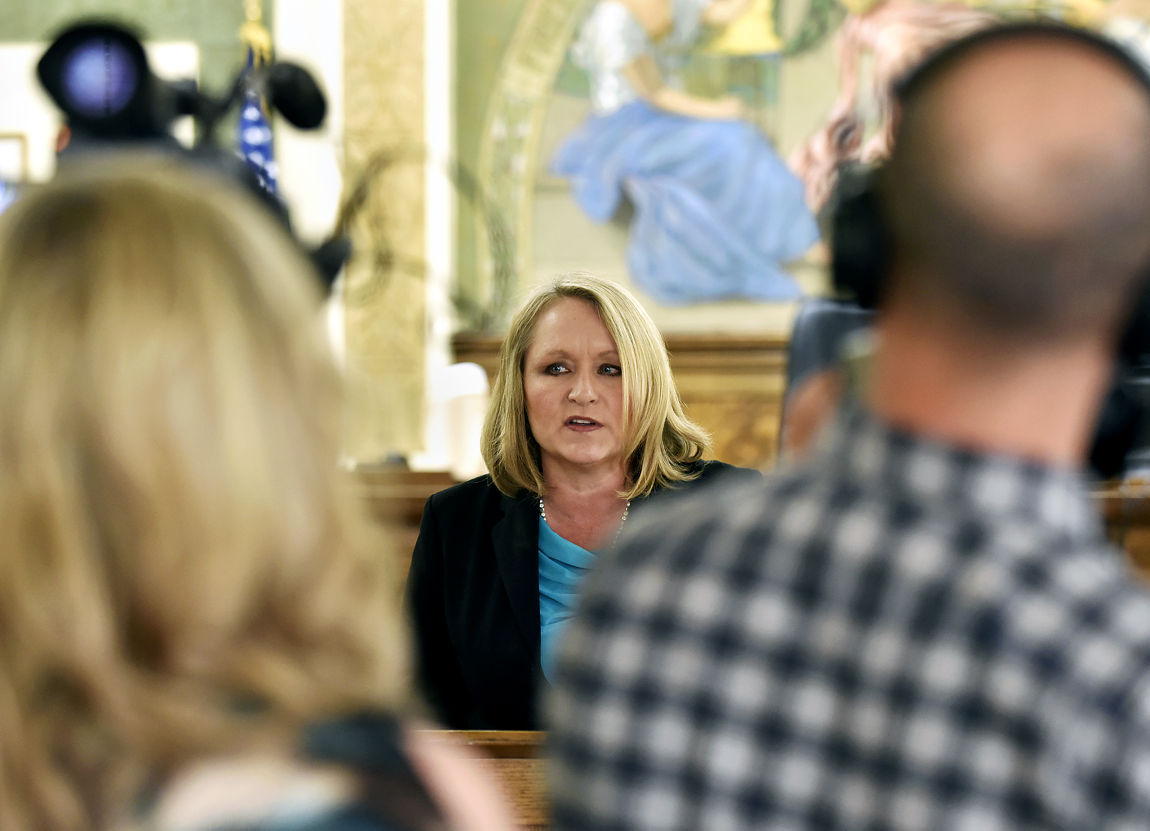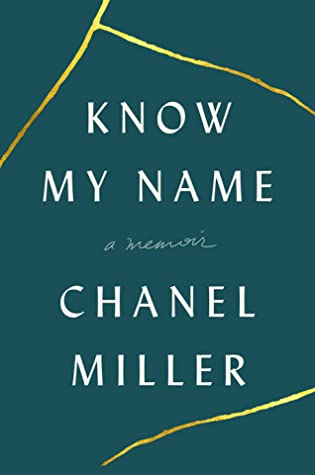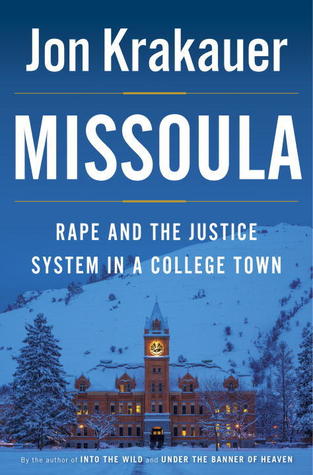Review:
Missoula, Jon Krakauer
Know My Name, Chanel Miller
The more you learn, the more you know. Turns out, the more you know… the more you know you don’t know.
There comes a time when reading a book spins you around and drops you breathless in the dust. This kind of thing just makes you humble.
Humble, like it made me think, “man, I’ve put seven solid years of energy and drive into my own book, honing it, making it real, this tale of broken trust, devotion, manipulation, violation, and, oh yeah… baseball… seven years of watching characters appear on the page, seven years breathing life into them, feeling with them as they play and love and hurt and die, seven years, and I still don’t know jack.”
That kind of humble. And so it was, two books in a row during regular morning reads, that I got slammed to the dirt. Seriously. I don’t know jack.
Jon Krakauer’s Missoula hit first, angry, piercing, demanding, heartbreaking. Well of course it was, I mean, it was Krakauer. In his Krakauer way, he takes a town, a school, and a football team, and pushes the envelope of justice, fairness, who gets listened to, who gets caught, who goes free. He paints a shadowy world of creepy golddigger defense attorneys, lazy (or corrupt… which is worse?) DAs and cops, and rape victims who get assaulted once by their rapists and again, maybe more brutally, by the system that’s supposed to protect them as they tread the rocky and scary path of justice.
Krakauer gives us football players who define fall Saturdays in Western Montana and who live above the law the rest of the week.
The level of detail in the book is disturbing. But it has to be there. It can’t be glossed over. More impressive is the courage of the victims, knowing the odds, fighting anyway, when less than one half of one percent of sexual assaults see the perp serving jail time.
Goddamn. I’ll say that again. Think about that. Less than one half of one percent — precisely, 4.6 of 1,000 — of rapists serve time in jail.
Krakauer has been accused – maybe not unfairly – of bias. Bias in favor of rape victims may not be a bad thing, considering the bias against them in the courts and in society in general. But there is a practical nature to law enforcement and prosecutions. DAs work on a limited budget and have to parse time and energies only to cases they feel they can win… and when that happens, well, guilty rapists walk free and innocent rape victims are left with a lifetime of open trauma. And new rape victims see the odds against them and never even pick up the phone. And more rapists see there’s more chance they’ll get away with it, and they do it again…
Krakauer set out to etch that cycle in his readers’ brains. And he did a damn good job of it. Seems he pissed off a prosecutor, who still cashed in anyway. The town’s pushback on Krakauer swept Kirsten Pabst to victory in the next election, and she’s not looking back.

If Jon Krakauer was angry when he wrote the book, I was livid when I put it down.
Missoula was still warm on the shelf when I picked up Chanel Miller’s Know My Name.

You know Miller, but you didn’t know her name. You know her as Brock Turner’s rape victim. You know Turner as the Stanford swimmer with so much potential… but you only know that because two random Swedish grad students interrupted him sexually assaulting an unconscious woman. You know those Swedish grad students because they ran Turner down on their bikes and tackled him like the squealing little pig he was. That unconscious woman became known as Emily Doe.
Also known as Chanel Miller.
And if Krakauer’s book disturbed readers with its level of detail, Miller takes a different course. The detail is still there, excruciating, the assault, the aftermath, the exams, the dirt and pine cones stuck to her body, her missing clothing, the slow realization of what had happened to her. But from beginning to end, Miller takes us on a roller coaster of joy and pain and inspiration and despair.
Her mission was clear. “When I was given the opportunity to write this book,” she writes, “whatever God is up there said, ‘You got your dream.’ I said, ‘Actually I was hoping for a lighter topic,’ and God was like, ‘Ha ha! You thought you got to choose.’”
But while Miller’s own courage, her tenacity, and her strength are clearly on display in the story she tells, she’s brutally honest about the toll she paid. Not just the rape, but maybe even more so, the years that followed.
Her head still spins over the way our system treats rapists better than it treats their victims:
“[Brock] got to be a person. Where was [my] redemption story? Nobody talked about the things [I] might go on to do. I had laid my suffering bare, but I lacked a key element. The judge had given Brock something that would never be extended to me: empathy. My pain was never more valuable than his potential. …We force [a rape victim] to think hard about what this will mean for [the rapist’s] life, even though he never considered what his actions would do to her. …‘Oh but his reputation! That’s really where he suffers.’ My advice is, if he’s worried about his reputation, don’t rape anyone.”
And it’s worse when the rapist is rich. And white.
“Instead of a nineteen-year-old Stanford athlete, let’s imagine a Hispanic nineteen-year-old working in the kitchen of the fraternity commits the same crime. Does this story end differently? Does The Washington Post call him a surgeon?”
Miller is clear about how lucky she is to have a warm and supportive family who inspired her to get through. But “I thought of mothers who had commented, ‘My daughters would never…’ which made me sad because comments like that did not make her daughter any safer, just ensured that if the daughter was raped, she’d likely have one less person to go to.”
Miller’s storytelling is insightful, it’s uninhibited, it’s true and clear and brave. But toward the end, right about where the inspirational uplift is supposed to happen, we’re left wondering. While we celebrate a rare takedown, where are the other 99.54 guys who did the same thing but didn’t have to face a tiger like Chanel Miller in court? How do they get to walk? For that matter, how did Brock Turner get to walk?
“My DA’s boss says he is proud of everyone, all our hard work… [that] things will be better because of us.”
But why is it like this in the first place? How have we managed to continue a rape culture where men grow up to think they can take whatever the hell they want – without considering the consequences for others, and for sure with no consequences themselves, even when they do get caught?
Even in the aftermath of Miller’s courage and her book and the success of her legal team, the number of rapists that even go to trial will be just as minuscule. And the number of victims who never report and force themselves to “just live with it” will be just as vast.
What the hell will it take for us to create a culture where the rapist himself is the anomaly, the one whose behavior is so rare and unfamiliar that, unlike Brock Turner, parents and French teachers and ex-girlfriends shun him because he raped someone? Today, victims still get shunned, treated like they’re the guilty ones; our court system still rapes the victim all over again, and sick punks like Brock Turner still go on doing whatever they want and getting away with it. Because in the end in this case Brock got away with it.
“They tell you,” Miller writes as she concludes her story, “that if you’re assaulted, there’s a kingdom, a courthouse, high up on a mountain where justice can be found. …I made it, the summit, the place few victims reached, the promised land. We’d gotten an arrest, a guilty verdict, the small percentage that gets the conviction. It was time to see what justice looked like. We threw open the doors, and there was nothing. It took the breath out of me. …What could I tell [others]? A system does not exist for you. …When you are assaulted, run and never look back. [Brock’s] was not one bad sentence. This was the best we could hope for.”
But Miller makes no excuses about the empty feeling her readers may carry away when they finish.
“As a survivor, I feel a duty to provide a realistic view of the complexity of recovery. I am not here to rebrand the mess he made on campus. It is not my responsibility to alchemize what he did into healing words society can digest. I do not exist to be the eternal flame, the beacon, the flowers that bloom in your garden.”
Her story is real. It hurts to read it. And like Krakauer, her words are worth your time.
